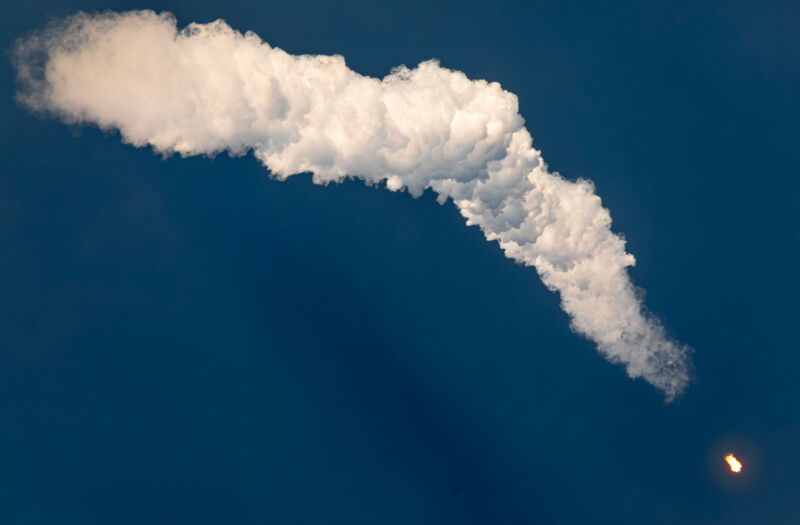
Welcome to Edition 3.06 of the Rocket Report! On Saturday, Americans will celebrate the Fourth of July with preposterously small solid rockets. Readers of this report, however, will know that every day of the year is worth celebrating with rockets. And there’s plenty of news to go around this week, so let’s get to it.
As always, we welcome reader submissions, and if you don’t want to miss an issue, please subscribe using the box below (the form will not appear on AMP-enabled versions of the site). Each report will include information on small-, medium-, and heavy-lift rockets as well as a quick look ahead at the next three launches on the calendar.

Weather forces a very long delay in Vega launch. The European rocket firm Arianespace has been trying to launch a Vega rocket carrying dozens of small satellites for the better part of a year. Most recently, unfavorable upper-level winds scuttled three different launch attempts in late June. On Wednesday, Arianespace seemed to throw up its hands in frustration and postpone the flight until August 17, “when the forecast is expected to be more favorable based on modeling of the winds.”
OK, it wasn’t just weather … A seven-week delay due to weather seems excessive, so Ars dug a little further. The forecast for the next week or 10 days does look cruddy with regard to upper-level winds. But after that time, batteries onboard the vehicle (and some of the payloads) will need to be recharged, and doing so would delay an Ariane 5 launch planned for July 28. So Vega’s return-to-flight mission got punted.
DoD withdraws small-launch contract awards. Well, that was fast. On June 16, the Defense Department announced it had selected Aevum, Astra, X-Bow, Rocket Lab, Space Vector, and VOX Space to receive noncompetitive contracts to launch two rideshare missions for government customers over the next 24 months. On Wednesday, the department reversed the decision.
Justification needed … According to SpaceNews, multiple industry sources said that the selection of the six companies drew widespread criticism because it was unclear how these suppliers were selected over others. When contracts are awarded without an open competition, DoD by law has to file a “Justification & Approval” document explaining why an award was sole-sourced. No such documents were filed in this case. (submitted by trimeta, JohnCarter17, and Ken the Bin)
Firefly now targeting mid-October for Alpha launch. In a recent interview, Firefly’s founder, Tom Markusic, said the company has lost a month of schedule due to a test-stand fire in January and perhaps one to two months due to COVID-19. “The plan is now mid-October this year, which does represent a couple of months slip from earlier,” he told Connectivity Business about the Alpha rocket’s first launch. “Overall, I think we’ve been very fortunate in both incidents that we weren’t set back for a longer duration.”
Material comes in, rocket parts go out … During the interview, Markusic said the company’s vertical integration helped limit the amount of time Firefly lost to the pandemic. “We did have some interruption in some of the material supplies, in particular the composites that caused us a bit of a delay, but I think the vertical integration really helped us because it’s just a matter of branding on material and assembling, as opposed to waiting on finished boxes to come in the mail,” he said.
SpaceShipTwo makes second New Mexico glide flight. Virgin Galactic conducted its second test flight of its SpaceShipTwo suborbital vehicle from its New Mexico spaceport on June 25, and the company now says it is ready to resume powered flights of the spacecraft, SpaceNews reports. “It was an important test that, pending data review, means we can now start preparing the vehicles for powered flight,” George Whitesides, chief executive of Virgin Galactic, said.
Testing handling conditions … The company billed this flight as a “high speed” test of SpaceShipTwo, with the spacecraft reaching speeds of up to Mach 0.85 during its descent. The higher speed was designed to test how the vehicle handles at conditions closer to powered flight. Virgin Galactic also said it will reveal the spaceship’s interior on July 28. (submitted by Ken the Bin, platykurtic, and JohnCarter17)
Australian company tests its rocket engine. Queensland-based Gilmour Space Technologies said in late June it has completed a successful 45-second ‘hot fire’ of its upper-stage hybrid rocket engine. “This was our longest and most efficient test fire to date,” said Gilmour Space CEO and co-founder Adam Gilmour.
A growing company … The company is developing a hybrid-propulsion technology to power its “Eris” orbital rocket. Gilmour, which reports having 50 employees, has set a goal of launching its rocket in 2022. Among its near-term goals are low-altitude tests of its guidance, navigation, and control systems as well a static-fire test of its first-stage engine. (submitted by Ken the Bin)
https://arstechnica.com/?p=1689076

